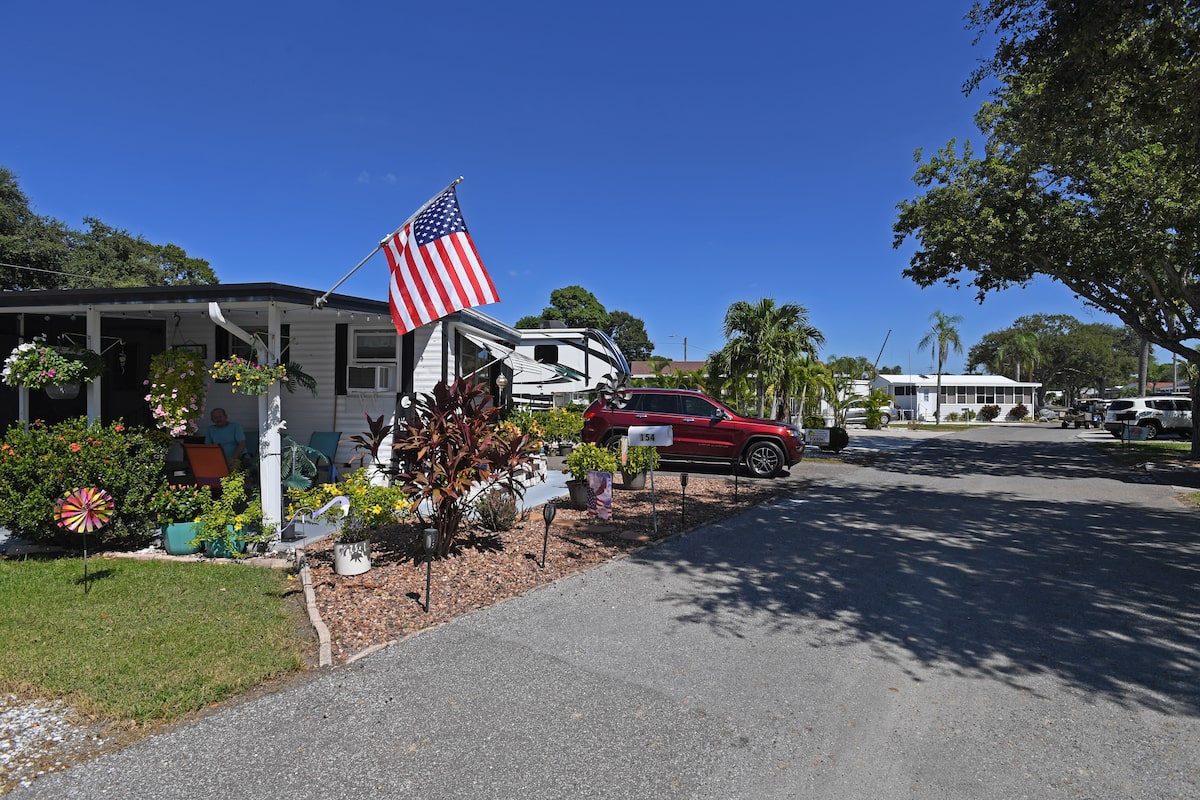Many snowbirds who fly south for winter stays at RV parks or other properties are still booking their flights for the upcoming season.Mark Taylor/The Globe and Mail
Last winter, many Canadian snowbirds vowed to boycott travel to the United States, cancelling their usual trips south in the face of a weak Canadian dollar, new travel rules and political tensions. This winter, the migration appears to be back on for some.
Preliminary figures show that, on average, Canadians have booked Florida stays for November and December nearly a month earlier than in 2024, according to vacation-rental data firm Key Data, which tracks reservations on Airbnb, Vrbo and other property platforms. They are also paying 70 per cent more on average to do so.
These provinces are boycotting U.S. travel the hardest
Despite lingering unease, it’s clear many retirees aren’t letting politics get in the way of sunshine.
“If we wait four years for a potential U.S. administration change before we start snowbirding in the U.S., we feel like we’d be shortchanging ourselves,” said Larry Vanderveen, 59, who is travelling to California from just outside Calgary this winter with his wife.
“Unfortunately, Canada doesn’t have a Caribbean island. We retired early, we both have our health, and we both enjoy warmer weather. … It’s our time now to enjoy the U.S. winters that the baby boomers before us have been doing for the last two-plus decades.”
Last year, some snowbirds cancelled their usual trips south of the border due to political tensions between Canada and the U.S., as well as a weak loonie and new travel rules.Mark Taylor/The Globe and Mail
In early 2025, U.S.-Canada tensions peaked right in the middle of snowbird season, after most travel plans were made.
“This is the first season where we’ll really see what the impact is, between the tariffs, the rhetoric around the 51st state and the new requirements to register in the U.S.,” said Stephen Fine, president of Snowbird Advisor, which offers services such as insurance and currency exchange.
As of April 11, Canadians staying in the U.S. for 30 days or more are required to register with the U.S. government unless exempt. While the rule initially caused confusion, travellers told The Globe they feel less anxious heading into this season, as many have already navigated the process.
There’s no clear count of how many snowbirds will head south this winter. Mr. Fine said the decision often comes down to how tied travellers are to the U.S. “Snowbirds who rent for the season have more flexibility. About 30 to 40 per cent of snowbirds own property. … They’re going to utilize that.”
Canadians’ overall travel to the U.S. remains down. In July, 2025, Canadian residents returned from 2.6 million trips to the United States, a 32.4-per-cent drop from the same month in 2024.
Earlier this year, some RV park owners in the U.S. saw their loyal Canadian customers hesitate to rebook. But for every snowbird sitting out, there seems to be another ready to replace them, according to Dorothy Brown, who manages two Florida RV camps, where Canadians make up roughly a quarter of guests.
“At both of the RV parks, we lost a couple, but the majority that have been with us for years are coming back down, plus a couple of new ones,” she said. “It made up the difference.”
Canadian travel companies adapt as clients avoid U.S. travel
Canadians, especially retirees, embraced RV travel during the pandemic as a way to explore while staying in their own space, said Shane Devenish, president of the Canadian Recreation Vehicle Association. A 2023 study commissioned by the association found that 14 per cent of Canadian households owned an RV, up 3 per cent from 2019. Boomers make up about 40 per cent of that market, he said.
“RVs aren’t designed to be lived in cold weather,” Mr. Devenish added, “so people may want to go to the U.S. where it’s warmer.”
Nancy Schreiber, property manager at Paradise Island RV Resort in Oakland Park, Fla., said Canadians typically make up about 65 per cent of her clientele between November and April. Most are between 50 and 70 years old.
“This year there were quite a few sales of RV spots, but they’re being bought right up by Canadians,” she said. “There’s a lot of turnover, and we’re getting a younger crowd.”
At some Florida RV parks, Canadians make up a significant portion of the guests.Mark Taylor/The Globe and Mail
For many snowbirds, the social ties and sense of community they’ve built down south outweigh political discomfort. Tim Wilkin, 73, who owns a condo in Estero, Fla., and lives in Kingston, said he and his wife never seriously considered skipping their trip despite the uncertainty with the U.S.
“We’ve made close friends, it’s like a winter camp for seniors,” he said.
Gordon Jones, 78, from Virden, Man., also wrestled with his decision to return as a long-time snowbird who winters in South Padre Island, Tex.
“The personal debate was just over a lot of this ‘51st state’ nonsense and the way that Trump has treated Canada.”
He continued: “I’m very pro-Canadian, I’ve got a Canadian flag flying on the fence outside my house.” And, he said, he’s made a lot of friends in Texas who respect Canada.
He went last year and is heading back to Texas this winter season.

